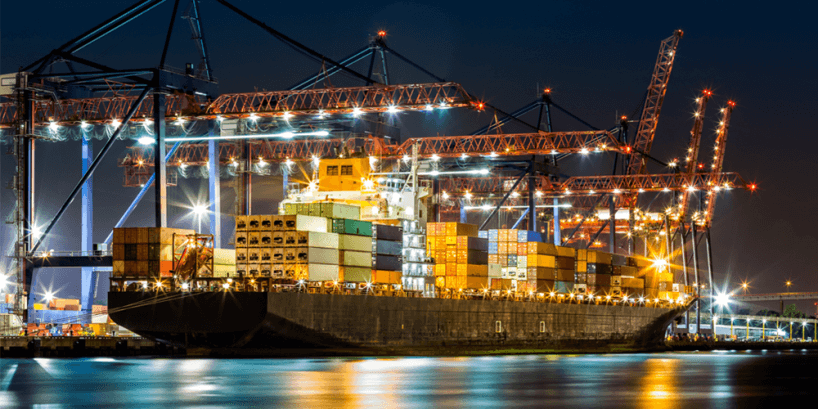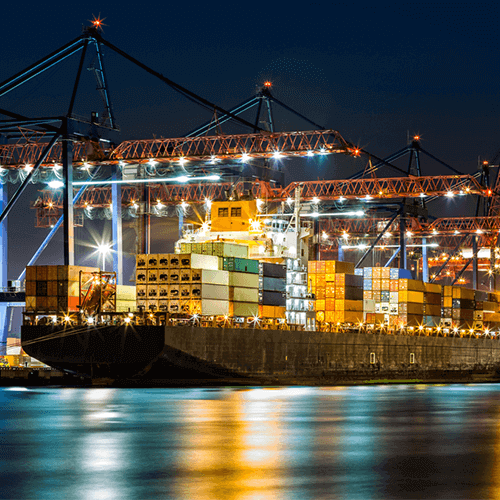The Changing Face of Shipping

CDG is an English law firm based in the City of London and provides a range of services to the shipping and oil and gas sectors. Founded in 1996, CDG has built a reputation as one of the UK’s leading practitioners of maritime and energy law, with particular expertise in shipbuilding and offshore construction, ship conversion and repair, asset finance (including PE), drilling and other offshore services. We spoke to Matt Hannaford, from CDG’s maritime finance and projects team about the current state of the shipping sector and the challenges this presents to the law firms working to support the industry.
There is certainly overcapacity of tonnage in many sectors of the shipping industry, and a glance at the world newbuilding order book underlines that, without a significant upturn in both trading demand and the rate of extraction from the market of older tonnage, this situation will prevail for some time to come. As for all the other stakeholders in the shipping and offshore energy sectors, it will be a case of the survival of the fittest and this maxim will become increasingly relevant the longer the situation persists.
I do not believe that it is realistic or, arguably, desirable, to seek to limit orders of new ships. Rather, focus should be placed on reducing the amount of older tonnage. There has already been a significant push in recent years to promote the construction of (or conversion to) safer and greener ships and this has led inevitably to certain tonnage being scrapped. However, the imposition of any such regulatory initiatives must take into account the cost to be borne by the ship owners and charterers.
Overcapacity is just one of the many realities facing businesses in the shipping industry. Other factors include consolidation, contraction of traditional debt financing (and the corresponding increase in alternative sources of funding such as private equity) and a consequential widening of the gap between the “haves” and the “have nots”. This last point is reflected also in the legal sector as law firms must evolve to be able to meet their clients’ needs in an increasingly complex and sophisticated environment. The challenges and the opportunities this presents are two sides of the same coin.
For CDG success has come from doing work at which we excel (and not being tempted to stray into other areas despite the perceived short-term attraction).This requires discipline and management but, in the long run, it pays dividends in the form of market recognition. Sustaining and improving the standard of service involves three simple steps; first, ask your clients what they want from you; second, listen to what they tell you; and third, explore ways to achieve it. If you ask in-house counsel they frequently observe that it’s at the second step that their external counsel often falter.
From our experience, every client is different and has their own specific needs. Indeed this may be true of individuals within a single client entity. A CFO of a shipping company may only want to talk to a senior partner on high level matters; his in-house counsel may want a sounding board and to be kept appraised of (relevant) changes in the law which may not come so quickly to his or her attention. The shipowner’s technical representative as the shipyard might need the lawyer to fly to the yard at short notice to support at a meeting with the builder. The key question is whether or not what we are doing is (and is recognised by the client as) value-adding.
CDG is a modern law firm but its culture is firmly that of a law firm rather than a corporate provider of legal services. In part, this is a consequence of its size but, more than that, it reflects how specialist we are. Many firms talk about having an “open door” policy: we have a “no door” policy; namely, we sit in an open-plan office and if someone has a sensitive (or loud) call to make they can retire to a break-out room and find a door to close.
What separates us from our competitors is our focus on specific disciplines within the shipping and offshore sectors. For nearly 20 years CDG has been developing and refining its reputation as a law firm of excellence in the fields of shipbuilding and offshore construction (our Senior Partner, Simon Curtis quite literally writes the book on this area of law), ship finance, drilling projects and the sale and purchase of second hand tonnage. Whether it is a ship owner involved in a complex dispute or a private equity fund embarking on a large-scale investment project, the primary requirement (and our aim) for the provision of external legal support is the same – legal expertise, industry knowledge and a solution based approach.
Despite some of the setbacks happening in the shipping industry, we are optimistic about the future. For the remainder of 2015 and beyond we have an excellent pipeline of challenging and interesting work for similarly challenging and interesting clients. The primary philosophy behind our business model remains sound for the time being but we are very conscious of the danger of resting on our laurels so we must challenge and adapt it continually to reflect changes to the market and, crucially, to our clients’ ever-evolving needs.
Name: Matt Hannaford, Partner
Company: Curtis Davis Garrard LLP
Address: 29 Ludgate Hill London EC4M 7JR
Telephone: 44 020 8734 2800
Web: www.cdg.co.uk




















